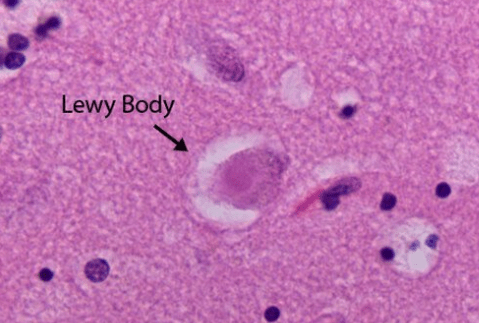
[cmamad id=”22042″ align=”center” tabid=”display-desktop” mobid=”display-desktop” stg=””]
Is it all over for orange juice…?

—-Important Message—-
Here’s What Causes Alzheimer’s – and What You Can Do to Stop It
Alzheimer’s results in Lewy bodies in the brain:

Lewy bodies mean Alzheimer’s.
What creates these Lewy bodies?
A toxin called blood fat that directly penetrates the brain. This blood fat creates Lewy bodies – and that means Alzheimer’s.
———-
The Connection Between Orange Juice and Alzheimer’s
Today I’m going to talk about Alzheimer’s and orange juice. But before we get there…
Scientists know about many of the things that affect cognitive function.
Age and diet are some of the most potent lifestyle factors on that list.
A team of scientists in Boston just completed a long-term study on this subject.
The results give some great dietary tips to protect brain function as we age.

These researchers carried out this human study at the Harvard Chan School of Public Health in Boston. They published the results in the Journal of Neurology.
The study addressed subjective cognitive function.
This involves the participants completing a questionnaire relating to memory and mental performance.
“The aim was to evaluate the prospective association of long-term intake of vegetables and fruits with late-life subjective cognitive function.”
The participants rated themselves on the following questions:
- Do you have more trouble than usual remembering recent events?
- Do you have more trouble than usual remembering a short list of items, such as a shopping list?
- Do you have trouble remembering things from one second to the next?
- Do you have any difficulty in understanding things or following spoken instructions?
- Do you have more trouble than usual following a group conversation or a plot in a TV program due to your memory?
- Do you have trouble finding your way around familiar streets?
The study consisted of over 27,000 men with an average age of 51. All of the participants were health professionals.
The participants completed the assessment of cognitive function in 2008 and again four years later.
[cmamad id=”22043″ align=”center” tabid=”display-desktop” mobid=”display-desktop” stg=””]
“Subjective cognitive function was assessed twice using a six-item questionnaire.”
They also completed a self-reporting food questionnaire every 4 years for 20 years.
The researchers used this to calculate the participants’ fruit and vegetable intake.
“Average dietary intake was calculated from 5 repeated food frequency questionnaires collected every 4 years until 2002.”
The researchers then looked at the relationships between food intake over 20 years and changes in cognitive function.
Men who ate more vegetables had better cognitive function.
“Higher intake of total vegetables was significantly associated with lower odds of poor cognitive function.”
High vegetable consumption was associated with a 34% lower risk of poor cognitive function compared to low vegetable consumption.
Green leafy vegetables were particularly beneficial in protecting cognitive function.
Fruit and fruit juices also lowered the risk of declining cognitive abilities.
“Total fruits, and fruit juice were significantly associated with lower odds of moderate and poor cognitive function after controlling for other factors.”
In particular, orange juice provided significant benefits.
“For orange juice, daily consumption was associated with substantially lower odds of poor subjective cognitive function.”
So fresh fruit, green vegetables, and orange juice can protect mental function as you age.
“Our findings support a long-term beneficial role of vegetable, fruit, and orange juice consumption on subjective cognitive function.”
The researchers also found that fruit and vegetable intake were long-term predictors of cognitive function.
“Higher consumption of vegetables and fruits 18 to 22 years before cognitive assessment was associated with lower odds of poor subjective cognitive function independent of more recent intake.”
The strongest effect in this study came from consuming orange juice daily.
There are many beneficial nutrients in green vegetables and orange juice.
Both contain numerous vitamins and minerals that can help to protect the brain.
In addition, orange juice contains large amounts of compounds called hesperidin and naringenin.
These compounds protect the gut and the brain – lowering the risk of many diseases.
These compounds are most concentrated in the skin of the orange.
So marmalade, which is made from orange skins, may also be a great addition to a brain-healthy diet.
You should always consult a healthcare practitioner about treating and diagnosing health-related problems.
—-Important Message—-
Should Diabetic and Prediabetic Men Eat Fruit?
The FDA recommends diabetic men eat fruit.
But is it true?
Sure, fruit is healthy… But it contains a LOT of sugar.
Fructose specifically — and fructose is supposed to be implicated in diabetes.
However, fructose is unusual – it does not increase insulin!
So should prediabetic and diabetic men eat fruit?
Here’s the answer about fruit, and other foods the FDA recommends diabetic men eat…

———-

- Long-term intake of vegetables and fruits and subjective cognitive function in US men
http://n.neurology.org/content/early/2018/11/21/WNL.0000000000006684
- The Physics of Orange Juice | Science Mission Directorate
https://science.nasa.gov/science-news/science-at-nasa/1998/ast03nov98_1 - Oranges vs. Orange Juice: Which Is Better for You?
https://www.nutritionletter.tufts.edu/issues/11_5/current-articles/Oranges-vs-Orange-Juice-Which-Is-Better_1709-1.html
